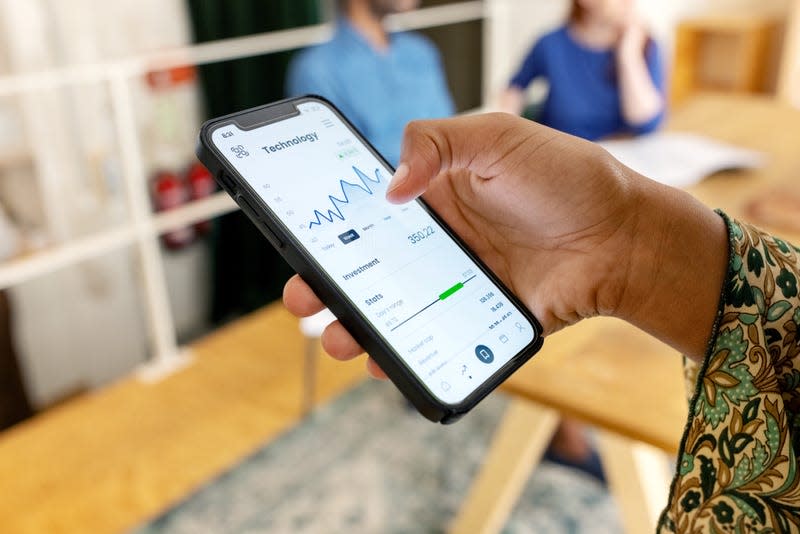SVB's Collapse Wasn't Black People's Fault, But It Did Hurt Black Founders

Updated 3/25/2023 at 8:00 a.m. ET
Everyone is talking about the collapse of Silicon Valley Bank and for good reason. Silicon Valley Bank, also known as SVB, is the largest bank to fail since the 2008 financial crash (which most of you will remember didn’t go so well).
Read more
Aside from Halle Bailey, Here Are Other Black Disney Actors and Characters We Love [Update]
Megan Thee Stallion Becomes 1st Black Woman to Land Forbes 30 Under 30 Cover
New reporting into mismanagement at the bank is raising some serious concerns. But while it’s wise to have a healthy dose of curiosity about why an outwardly stable bank went under in a matter of days, it’s not time to panic just yet.
Why This isn’t The 2008 Crash
Most of SVB’s clients weren’t like you and me (i.e., ordinary people with modest checking and savings accounts). The company primarily did banking services to big tech start-ups and venture capitalist-backed firms.
The most important thing to know about SVB is that while it’s definitely a large bank, it’s not, say, JP Morgan Chase large. SVB had roughly $209 billion in assets before its collapse, which accounted for less than 1 percent of all banking assets in the U.S. For comparison, JP Morgan Chase has more than $3 trillion in assets.
Because of its size, most experts aren’t predicting that SVB’s failure will lead to a widespread banking collapse. (Although it did precipitate the end of the somewhat smaller tech bank, Signature Bank).
Why Did Silicon Valley Bank ACTUALLY Collapse?
So why did the bank actually fail? The answer is not that it had “1 Black” on their board like The Wall Street Journal editorial pages suggested.
The bank failed for the reason pretty much all banks fail; people requested to pull out more money than the bank had on hand.
The reason they didn’t have enough money is a little complicated and definitely contested. Essentially, the bank bought a ton of treasury securities (which are generally a safer bet). But when the Federal Reserve began to raise interest rates to combat inflation, the value of those securities decreased. Couple that with trouble in the tech industry, their decision to have a ton of uninsured depositors, other serious mismanagement issues, and the bank took a massive financial hit.
Once they announced their losses, depositors began to pull out their money fast (in what’s known as a bank run). Since SVB didn’t have enough funds to pay those people back, regulators closed down the bank.
Will The Bank’s Closure Hurt Black Founders?
There is some talk that the closure of SVB could hurt Black entrepreneurs who banked with them. The bank was known for working with and supporting entrepreneurs of color who often have difficulty accessing banking resources.
Not only will some of these businesses take a massive hit, but these CEOs will also have to search for new banking relationships that can be difficult to find.
“I’m very nervous that I will not be able to raise the money I need to keep my company going,” Barbara Jones-Brown, founder and CEO of the IT retail fraud prevention company Freeing Returns, told NBC News, “and it’s so scary after the beautiful, amazing year we had last year.”
Isa Watson, a Black founder of a voice-only social messaging app Squad, told CNBC that Black founders like herself who banked with SVB had a different reaction to the bank’s collapse than white founders:
“This is so sad,” Watson recalls a fellow Black founder telling her following the bank’s failure. “You know how it is for us. You know, we don’t really find people that back us up like that in a big way.”
Finding someone else to work with won’t be easy, she says. “It took me about two years and 400 no’s for the first VC to take me seriously,” Watson told CNBC.
Should The SVB Collapse Scare the Average Black American?
Black CEOs who banked with the California-based bank aside, the average Black American doesn’t need to be super concerned just yet.
First and foremost, unless you’re holding over $250,000 in a single bank account, your money is likely insured by the Federal Deposit Insurance Corporation. (Most large banks are insured, but it doesn’t hurt to check)
At this point, it doesn’t look like the Silicon Valley Bank contagion will spread to the really big banks. However, that doesn’t mean that the issues that led to SVB’s collapse couldn’t harm other similarly sized and situated banks.
We know that when the U.S. economy gets cold, Black bank accounts get pneumonia. So it certainly doesn’t hurt to pay attention to larger economic issues like high inflation, the debt ceiling fight, and whether other banks start to suffer.
But in the meantime, there’s no need to start stuffing your paychecks under the mattress.
More from The Root
15 Priceless Black Twitter Moments Worth Remembering [Updated]
A Supersized List of March 2023 Books by Black Authors We Can't Wait to Read
19 Political Karens Caught in Their Own Lies, Nonsense and Racism
Sign up for The Root's Newsletter. For the latest news, Facebook, Twitter and Instagram.

